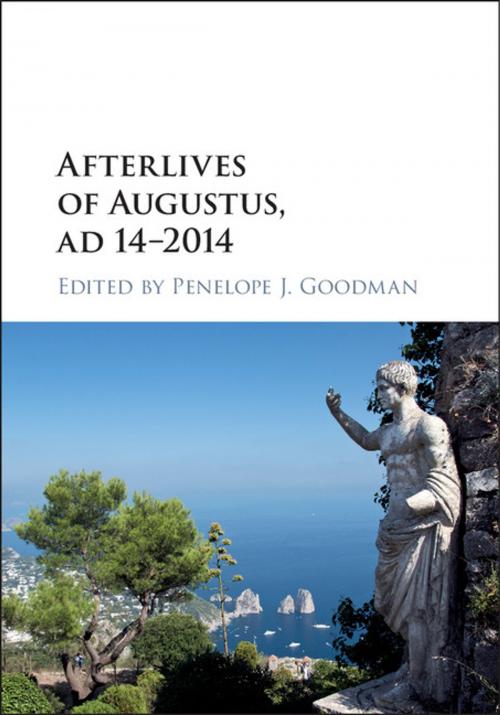| Author: | ISBN: | 9781108540056 | |
| Publisher: | Cambridge University Press | Publication: | April 30, 2018 |
| Imprint: | Cambridge University Press | Language: | English |
| Author: | |
| ISBN: | 9781108540056 |
| Publisher: | Cambridge University Press |
| Publication: | April 30, 2018 |
| Imprint: | Cambridge University Press |
| Language: | English |
The bimillennium of Augustus' death on 19 August 2014 commemorated not only the end of his life but also the beginning of a two-thousand-year reception history. This volume addresses the range and breadth of that history. Beginning with the Emperor's death and continuing through Late Antiquity, Early Christianity, the Middle Ages, the Renaissance and early modernity to the present day, chapters address political positioning, religious mythologisation, philosophy, rhetoric, narratives, memory, and material embodiment. As they collectively reveal, Augustus has meant radically different things from one time and place to another, and even to some individual commentators as the circumstances around them changed. The weight of established narratives has often also shaped those of subsequent generations, with or without their conscious awareness. The book outlines and analyses the major themes in Augustus' reception history, clarifying the cultural and historiographical issues at stake and providing a platform for further scholarship.
The bimillennium of Augustus' death on 19 August 2014 commemorated not only the end of his life but also the beginning of a two-thousand-year reception history. This volume addresses the range and breadth of that history. Beginning with the Emperor's death and continuing through Late Antiquity, Early Christianity, the Middle Ages, the Renaissance and early modernity to the present day, chapters address political positioning, religious mythologisation, philosophy, rhetoric, narratives, memory, and material embodiment. As they collectively reveal, Augustus has meant radically different things from one time and place to another, and even to some individual commentators as the circumstances around them changed. The weight of established narratives has often also shaped those of subsequent generations, with or without their conscious awareness. The book outlines and analyses the major themes in Augustus' reception history, clarifying the cultural and historiographical issues at stake and providing a platform for further scholarship.















